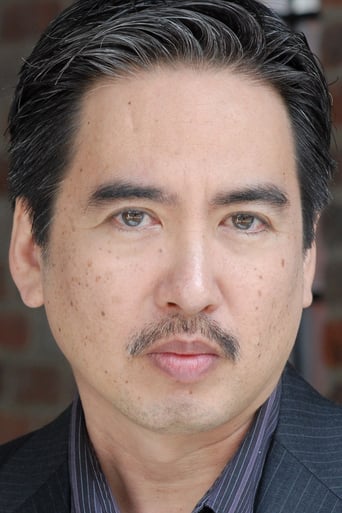Acensbart
Excellent but underrated film
Stoutor
It's not great by any means, but it's a pretty good movie that didn't leave me filled with regret for investing time in it.
Jakoba
True to its essence, the characters remain on the same line and manage to entertain the viewer, each highlighting their own distinctive qualities or touches.
bnair-14502
The movie "Come See the Paradise" was accurate in the fact that after the Pearl Harbor Attack, by the Japanese, the United States Government decided to relocate the Japanese into isolated internment camps in fear that some could be spies working at perhaps a bigger attack within America instead of on the coast. In the movie, Lily's family is forced to move out and forced into an internment camp without knowing why or when they will be released. Additionally, in the camp there were riots as well against the fact that the Japanese were ethnically isolated from the rest of society and Lily's brother took part in the riots with her family thinking that he wouldn't. In addition, Lily and Jack, Dennis Quaid's character, have had a daughter, who goes into the camp with her mother, while Jack goes into the Army, but not before one of the most lacerating scenes in the film, when Jack takes his little daughter to meet Santa Claus, and Santa refuses to let the child sit on his lap. "She's an American," Jack informs Santa, grabbing him, "and you will sit here and listen to what she wants for Christmas or I will kill you." "Come See the Paradise" has been criticized in a few places because it uses a technique that is common in movies about minority groups: A convenient Caucasian provides the point of view, so that the audience will have someone to identify with. The fact that it was told from this point of view does not sit well with me because the director is assuming a large Caucasian audience, which might not be the case, and the director also decides to include slurs appointed at the Japanese as well, which makes those that are Japanese watching this film very uncomfortable. So I think this movie was accurate. but in terms of audience liking it had a minimal effect on me.
minjoo-00707
It is always difficult to find and acknowledge fault in one's own history. In that sense, Come See the Paradise was a surprisingly historically well-portrayed film, considering that it is a movie made in the US about Japanese internment camp. The movie did justice to the historical tragedy that Japanese Americans had to go through, but also made it acceptable for a larger American audience. It touches on several historical facts, such as the formation of Japanese Citizen League, the loyalty question in the questionnaire, and different experiences of Japanese Americans and the parents who are aliens. A compromise was necessary in order to produce this movie, which I believe was cleverly done. Nonetheless, excluding the historical side, if we just evaluate the movie as another Hollywood film, I have to say it is generally terrible movie. The acting is very awkward and the lines made me cringe from time to time. Especially the scene in the Chinese restaurant where Jack and Lily first have lunch together was too cheesy that it was far from being romantic. Moreover, some parts of the plot seems irrelevant to the general storyline. For example, the fact that Jack was involved in the labor union business seems to have no connection with the rest of the story. The movie is slightly messy before the characters get interned in the camp, which happens relatively later in the film than I expected. I personally enjoy films that are coherent throughout, but this film was not one of them.
anninapluff
I think this film does a decent job depicting the experiences of Japanese Americans during World War II. The movie spends a lot of time establishing a pre-war normalcy that is uprooted in the later parts of the movie. Lily Kawamura's (Tamlyn Tomita) family is well established and prominent among Japanese American elite circles. They are educated and well dressed and prove themselves to be just like any other American. Japanese Americans were just like any other Americans. Yet the contingencies of war took that all away from them. The movie in the beginning does capture a bit of the tensions between non-hyphenated Americans and the Japanese Americans, mainly through the interactions with Lily's father (Sab Shimono) and Jack McGurn (Dennis Quad). What the movie best achieves though is a depiction of life within the internment camps and the costs of upheaval for many Japanese Americans. Lily's family is forced to give away everything and depart from their home in San Francisco and partake in the forced internment. This tears Lily apart from her now husband Jack, which is certainly emotionally distressing but the whole love story between them is so painfully awkward and horrible to watch that it is hard to fully feel any emotions one way or the other. I think Alan Parker would have done a better job focusing a bit more on the internment experience rather than this irritating love story.
With that, the internment experience showed the further trials that Japanese Americans had to face. They were asked to remain loyal to a country that took everything away from them. The film shows the internees struggling to reply to the infamous "Loyalty Question," question numbers 27 and 28 on a survey that all internees had to take. The question essentially asked them to either declare themselves to be fully committed American citizens, and potentially fight for their country or: "Will you swear unqualified allegiance to the United States of America and faithfully defend the United States from any and all attacks by foreign or domestic forces, and forswear any form of allegiance to the Japanese emperor, to any other foreign government power or organization?" These sort of questions had immense repercussions for those who answered no, as we saw in the movie when Lily's brother was sent to the Tule Lake internment camp with the rest of the "no-no boys." The tensions between the Nisei and Issei generations held a lot of sway in the film as well, another aspect that was well represented in terms of camp life. Overall the film depicted a complicated time in American history but lacked in the romance aspect of the film.
SnoopyStyle
It's 1936. Jack McGurn (Dennis Quaid)'s wife had gone back to Ireland after losing their unborn child in an industrial accident. He is an union "sweatshop lawyer" who gets run out of Brooklyn after he disagreed with burning down a theater. He comes to join his brother Gerry in L.A. and eventually gets a job at a Japanese theater in Little Tokyo. He falls in love with the owner's daughter Lily Kawamura (Tamlyn Tomita). Her father forbids her and she runs away to get married in Seattle. It was illegal in California at the time. He gets into trouble trying to organize the cannery plant that he works at despite her objections. She goes back to her parents right when Japanese forces attack Pearl Habor. The police arrests all the first generation men. Jack rejoins his family in L.A. The family is interned and Jack is drafted.The movie moves deliberately. It takes its time to show the cultural differences and give the romance some space. It's a bit slow but it works as an old fashion romantic film. It doesn't really heighten the drama more than a simple melodrama level. The running time is over two hours long and probably would work better with less. This starts as a fine love story about Jack and Lily but that drama fades into the background in the second half. The camp part of the movie becomes more about telling different aspects of life through the family members.






